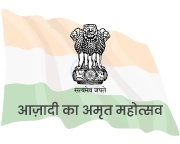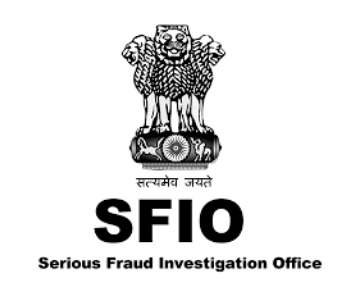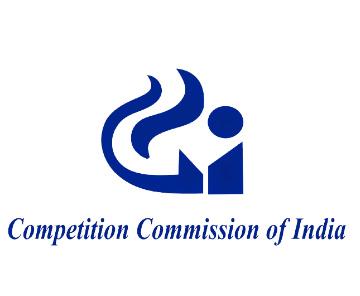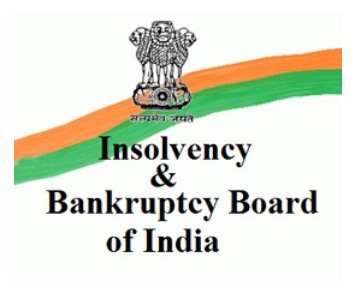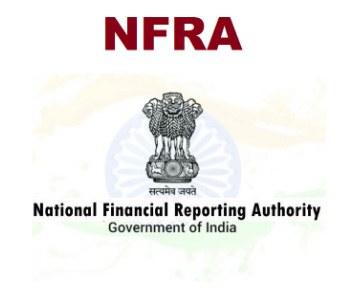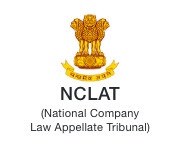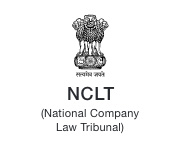
Investor Education and Protection
1. The Committee noted that the growth in the numbers of investors in India was encouraging. The trends revealed that in addition to FIIs and Institutional Investors, small investors were also gradually beginning to regain the confidence in the capital markets that had been shaken consequent to the stock market scams during the past decade. It is imperative for the healthy growth of the corporate sector that this confidence is maintained. For this purpose, the Committee feels that not only should corporate systems and processes be credible and transparent, the interests of the investors may be safeguarded in a manner that enables them to exercise their choice in an informed manner while making investment decisions, and also providing them with a fair exit option.
2. The concept of investor protection has to be looked at from different angles taking into account the requirements of various kinds of investors i.e. (i) investors in equity (ii) large institutional investors (iii) Foreign Investors (iv) investors in debentures and (v) small investors/deposit holders etc. The Committee also noted the initiatives taken by the Central Government for investor education and protection. Some State Governments have also taken initiatives through legislation for protection of depositors.
Separate Law for Investor Protection?
3. The question as to whether a separate Act is required for protection of investors was examined. After detailed discussion, the Committee formed the view that it was essential to ensure safeguarding the interest of investors through proper articulation of corporate governance in a manner that ensures transparency and accountability. The concept of investor protection cannot be treated in isolation from all the corporate processes. As such a framework exists in the country to deal with criminal offences the requirement is to provide a suitable orientation to corporate law so that the investor, irrespective of size, is recognized as a stakeholder in the corporate processes. Besides, a separate Act would require special enforcement mechanism with attendant coordination issues. Therefore, a separate Act for investor protection is not considered necessary. This aspect may be dealt with comprehensively and effectively in the Company Law itself.
Role of Regulators
4. The interface between the companies and its stakeholders including investors should be regulated through the legislative framework of the Companies Act and other civil and criminal laws of the country as well as by different regulators such as SEBI, RBI, etc. as well as institutions such as the Stock Exchanges through their rules of operation. Sometimes, various agencies pursue action in their respective domain without regard to the comprehensive picture. This results in overlap of jurisdiction or regulatory gaps. There is a need to bring about coordination in the role and action of various regulatory agencies to enable effective investor protection.
5. In particular, the capital market regulator, SEBI has a significant role to play in safeguarding the interest of investors. The Committee feels that such a role could be played by the regulator discharging its functions in a rational and objective manner with due regard to the interests, rights and obligations of all the stakeholders. SEBI has done a commendable job in developing the framework for Indian capital market in its formative stages subsequent to the liberalization process initiated in the 1990s. However, there is a need for the framework to develop further in a balanced manner keeping in view the Indian context while enabling best international practices. In doing so, the regulator must examine different aspects of capital market operation and the roles played by different intermediaries as also the interaction amongst them so that the capital market is able to deliver finance to meet requirements of the corporate sector promptly, in a cost effective manner and in keeping with the changing requirements of new business models. In carrying out this function, it should ensure the credibility of its processes in the eyes of the investors. Much remains to be done to achieve this objective.
End use of Funds
6. The Committee discussed the need for regulators to monitor the end use of funds collected from the public. The Committee felt that this should be the responsibility of the shareholders of the company who should charge company management with the responsibility coupled with adequate authority to ensure prudent and proper use of funds collected from the public. In doing so however, there is need for transparency so that both the regulators, investigative agencies as well as the investor are able to access appropriate financial information to form an opinion as to the financial conduct and performance of the company. Therefore, there should be a proper regime of disclosures in the public domain so that various agencies are able to reach their conclusion in a non-intrusive manner. Private companies could devise their own mechanism to the satisfaction of shareholders and lending institutions.
Credit Rating
7. The Committee examined the utility of credit rating to enable protection of investor interests. It was felt that while credit rating could only provide indicative information for the investor to assess the general standing of the company, credit rating was not an infallible assessment of the company. An impression, therefore, should not be created that sole reliance can be placed on credit ratings for investment decisions. However, credit rating would be a good evaluation mechanism and its wide use would be generally beneficial. There is however, no need to mandate credit rating by law except for companies accepting public deposits.
Special Provisions for Depositors
Risk cover for depositors
8.1 The Committee deliberated on the need for companies to take risk cover/insurance for depositors. It was felt that while risk cover may not be possible for equity investors, the insurance option should be explored for deposits with companies. It was felt that while the Banking companies and NBFCs were regulated by the RBI in the interest of the depositors, there was no similar mechanism in the case of deposits with other types of companies. Depositors, being in the nature of unsecured creditors, also do not get adequate protection under law in the event of liquidation or winding up of the company. It was also not feasible to develop a separate regulatory mechanism for this modality of mobilizing finance. However, some protection would be available to the depositors if the companies seeking deposits were also compelled to obtain insurance coverage for deposits. The Committee felt that this was a mechanism which would compel scrutiny into the credit-worthiness of the companies by the insurance companies in the interest of the depositors and hence recommend the same.
Other provisions
8.2 The Committee, during its deliberations discussed various aspects through which protection could be offered to safeguard the interests of depositors and made suggestions while considering the relevant corporate operations. The Committee, however, felt that the following aspects need to be brought out in a consolidated manner as follows :- Companies accepting public deposits should be required to · appoint independent directors; · appoint audit / remuneration / stakeholders relationship committees; · under take deposit insurance; · undertake credit rating; · create adequate cash reserves being set aside for repayment of deposits as may be prescribed by the rules; · be subjected to close monitoring in respect of implementation of any scheme for repayment of deposits that may be sanctioned by CLB/Tribunal/Court; · be subjected to a stringent disclosure regime; and · be subjected to stringent penalties for irresponsible / fraudulent behaviour by the companies.
Compensation to Investors
9. The Committee also discussed issues relating to compensation to investors. It was felt that the capital market included investment into risk bearing instruments. In such cases, the investor was required to make his own assessment of risk and reward. No compensation could be visualized for such investors whose investments were in risk bearing instruments. Similarly, investment in a fixed return instrument necessitated a careful review of the borrowing entity. Such actions would also be subjected to known or declared risks. Besides, the capital market also provides an opportunity for an investor to exit. The need therefore, is to ensure proper and healthy market operation so that investors could exercise their exit options in a reasonable and equitable environment. However, there may be situations where such a frame work is distorted through frauds. There may be provisions for compensation in the event of fraud by companies being established in securing funds from investors. For this purpose lifting of corporate veil may be enabled by the law. Certain pre-emptive measures may also be incorporated in the law so that the ill-gotten gains acquired through cheating of investors can be accessed and disgorged. The Committee, therefore, feels that compensation to investors may be payable only in cases of established fraud, through a judicial process from the assets of the company or by lifting the corporate veil, those of the promoters or other beneficiaries of such fraud, accessed through a process of disgorgement.
Investor Grievance Redressal
10. The Committee also took the views of the investor activists into account during its deliberations. The Committee noted that the phenomenon of vanishing companies had undermined investor confidence. Concerns about some of the practices followed by the depository participants to the detriment of small shareholders were also noted. An effective investor grievance redressal mechanism at the corporate level could ensure protection of the interest of investors through timely interventions. The Committee recommends that Stakeholders Relationship Committee should be mandatory for a company having a combined shareholder/deposit holder/debenture holder base of 1000 or more.
Consumer courts / Capital Market Ombudsman
11.1 Since shares and securities are also legally deemed to be “goods” under the Consumer Protection Act, 1986, investors should have the option to approach Consumer Courts under the Consumer Protection Act as a forum to redress their complaints. The extent to which the jurisdiction of the Consumer Courts may apply in such cases would have to be defined with regard to the nature of the investment and the entitlements arising from the related transaction. The capacity of the consumer courts to adjudicate on such matters will have to be upgraded through capacity building and training of judicial officers manning such courts. Training institutes may be set up by Government/Capital market Regulator to provide such training.
11.2 With the increase in the number of investors and greater awareness on their part, timely and simplified institutional structure for dispute resolution is desirable so that the investors are not compelled to resort to costly legal proceedings for protection of their rights. This would be particular relevant for the small investors. In this context, the institution of Ombudsman for Capital Market set up by SEBI should also be strengthened.
Investor Education and Protection Fund
12.1 The Government has established an Investor Education and Protection Fund (IEPF) under Sec. 205 C of the Companies Act, 1956 under which unclaimed funds on account of dividends, matured deposits, matured debentures, share application money etc. are transferred through the IEPF to the Government by the company on completion of seven years. The Government is required to utilize this amount through an Investor Education and Protection Fund. For this purpose, the proceeds from the companies are credited to the Consolidated Fund of India through this fund. This constitutes a cumbersome mechanism and has to be carefully examined in context of the rights of holders of securities and the role of the Government in protecting them while providing resources for investor education.
12.2 The Committee recognizes a need for ensuring the expropriated amounts to be credited back to the IEPF in their entirety. It would be desirable if this is enabled through a direct transfer of unclaimed amounts directly to a separate statutory fund under the control, supervision and management of an Administrator, without routing it through Consolidated Fund of India. The Government should also provide funds to augment the corpus of the fund through grants which may be properly deployed and managed. Returns from such a Fund should be available to be utilized for a comprehensive programme of education of small investors. The Fund may then be entrusted with full fledged responsibility to carry out activities for education of investors and protection of their rights.
12.3 The Committee also discussed various means by which funds already available under the IEPF could be utilized more effectively. It noted that the Ministry of Company Affairs, who administer the Fund, had already initiated some schemes in this regard. The Committee recommended that the structure and administration of the Fund should be revamped as above and schemes should be made more comprehensive and their scope expanded to enable flow of correct information to the investors as well as their education in respect of their rights. Such programmes should have special components for education at school/college level, on line and distance learning, support genuine efforts in the Non-Governmental sector, information collection, research and analysis on matters of small investor concerns, enable capacity building of adjudicators such as Consumer Courts on issues involved in legal redressal of investor complaints.
State expropriation of dividend
13. The mechanism of expropriating certain unclaimed amounts due to the investors for transfer to the IEPF as provided in the present law also raises a basic issue as to the right of the State to expropriate such proceeds when the underlying instrument or security is still in the hands of the investor who has not been able to claim it for any reason. The Committee remained unconvinced as to how the rights of the claimant holding a particular instrument could be extinguished in such cases. In view of the Committee, law should enable investors to claim returns on the securities as long as such instruments are held by them. Court ordered refunds should also be made from the funds available with IEPF. For this purpose, there should be suitable amendment in the law. It goes without saying that the procedure for making claims also needs to be simplified to facilitate reimbursement of such claims speedily. There was, therefore, a need to review the existing provisions of Section 205 C of the Companies Act and payment of unpaid dividend to the legitimate claimants, irrespective of the lapse of time.
Role of NGOs in Investors education
14. Many problems relating to investors, particularly, small investors, can be tackled by educating the investors. Small investors should be encouraged to either invest through Mutual Fund mechanisms, or should take investment decisions only after getting adequate information about risks and rewards. The investors should also be encouraged to participate in the proceedings at general meetings (either physically or through postal ballot, including by electronic media) in a constructive manner. This requires improving the general awareness of the investors through informal mechanisms. The help of various NGOs engaged in investor protection activities should also be taken for this purpose. The Committee perceives a positive role for Investors’ Associations / NGOs in this regard which should be supported by both the Government as well as corporate entities.
Class Action / Derivative Suits
15. A situation may arise whereby the interest of the company may need to be protected from the actions of the persons in control of the company. At the same time, the interests of the larger body of investors/shareholders may have to be provided legal avenues to protect the company in their interest. For this purpose, the law should provide for ‘class action/derivative suits on behalf of depositors/shareholders. The promoters, managers held guilty of misfeasance / fraud should be asked to pay the legal costs, if proven guilty. This concept has been considered by the Committee while examining issues relating to minority rights. The Committee feels that similar principles would also be relevant for investor protection and recommends the same.
Disclosures and Investor Protection
16.1 The Committee is of the view that proper and timely disclosures are central to safeguarding investor interests. The law should ensure a disclosure regime that compels companies to disclose material information on a continuous, timely and equitable basis. Information should be disclosed when it is still relevant to the market. The companies should, therefore, be made to disclose routine information on a periodic basis and price sensitive information on a continuous basis. Capital market regulator and stock exchanges have a significant role to play in ensuring that such information is accessible by all market participants rather than a few select market players.
16.2 Use of modern technology, internet, computers, should be enabled to enhance the efficiency of the disclosure process. It should be possible to submit and disseminate financial and non-financial information by electronic means.
16.3 Law should also provide a regime for enforcement of standards for accounting, audit and non-financial disclosure through setting of such standards and their effective monitoring and enforcement. At the same time, the Government should ensure the professional independence of standard setters, transparency of their activities and adequate means of disciplining defaulters.
16.4 There should be a regime of stringent penalties, both civil and criminal for default in disclosure.
